QuestionI have an 8-month old Corgi. I got him when he was 12 weeks old, and he housetrained relatively easily and quickly (about 4 weeks). He has a bell to ring when he goes outside and learned how to use it right away. However, I have always had problems with him pooping in the house. Recently, he started urinating in the house again. I put puppy pads back out but that has not helped. It seems like it started when I boarded him for a few days about a month ago. Sometimes he will ring his bell, but sometimes he will give me no indication that he needs to go and he will just urinate inside. He has always used the same two areas of the living room and I have always been careful to soak the area in Simple Solution to remove the smell. Just a few minutes ago, he peed on my couch. He has NEVER used the restroom on the furniture before. I need advice. Also, I have significant issues with him constantly barking, and constantly chewing. He bites my feet when he wants attention. When I am sitting he bites my hair, whenever I pet him, his biggest goal is to chew on my fingers and hands. It is difficult to discipline him because he sprints around the house, so I cannot catch him to hold his mouth closed or pop his nose for his misbehavior. He even does this right when we come back from a long walk and I think he is worn out. I really love my dog, but he is exhausting me right now, and preventing me from getting anything done. Please help!
AnswerAre you familiar with teenagers rebelling against their parents? I think that is what you are seeing. One would never neuter a teenager, but it is quite acceptable for a dog. Then begin obedience training. The key to most behavior problems is approaching things using the dog's natural instincts. Dogs see all the people and dogs in the household as a pack with each having their own rank in the pack and a top dog. Life is much easier if the 2 legged pack members outrank the 4 legged ones. You can learn to play the role of top dog by reading some books or going to a good obedience class. A good obedience class or book is about you being top dog, not about rewarding standard commands with a treat. Start at http://www.dogsbestfriend.com/ For more on being top dog, see http://www.dogbreedinfo.com./topdogrules.htm
When you are around you need to keep a close eye on the dog. Use closed doors or gates to keep it in the same room as you are, and perhaps as I do, a short chain fastened to the computer desk. If you catch it in the act, give it a sharp ''Ah, ah, ah!'' and take it out. When you can't watch it, crate it.
It is only natural that a puppy resists its crate at first. What the puppy
wants more than anything else is to be others, you, anyone else in the
household, and any other pets. In our modern society, even if we are home,
other things distract us from the attention an uncrated puppy must have. The
only real solution is to crate the dog when you aren't around. The dog may be
happier in its den than loose in the house. It relaxes, it feels safe in its
den. It rests, the body slows down reducing the need for water and relieving
its self. Dogs that have been crated all along do very well. Many of them
will rest in their crates even when the door is open. I think the plastic
ones give the dog more of a safe, enclosed den feeling. Metal ones can be put
in a corner or covered with something the dog can't pull in and chew. Select
a crate just big enough for the full grown dog to stretch out in.
Leave it some toys. Perhaps a Kong filled with peanut butter. Don't leave
anything in the crate the dog might chew up. It will do fine without even any
bedding. You will come home to a safe dog and a house you can enjoy.
A dog that has not been crated since it was little, may take some work.
Start out just putting its toys and treats in the crate. Praise it for going
in. Feed it in the crate. This is also an easy way to maintain order at
feeding time for more than one dog.
The "shut the puppy in a safe room" is a fallacy. Very few houses even have a
safe room. How many of us have a room with a hard surfaced floor and nothing
else? Most rooms have electrical cords to chew if nothing else. In addition
to destroying anything a bored puppy finds to chew, it may choke or have
intestinal blockage from the pieces. I had a friend that left her dog in a
"safe" room. It ate a hole in the floor covering. The safe rooms fail to
give the dog the comfort of the enclosed space their instinct requires. Nor
do they restrict activity extending the time the dog can go without relieving
itself.

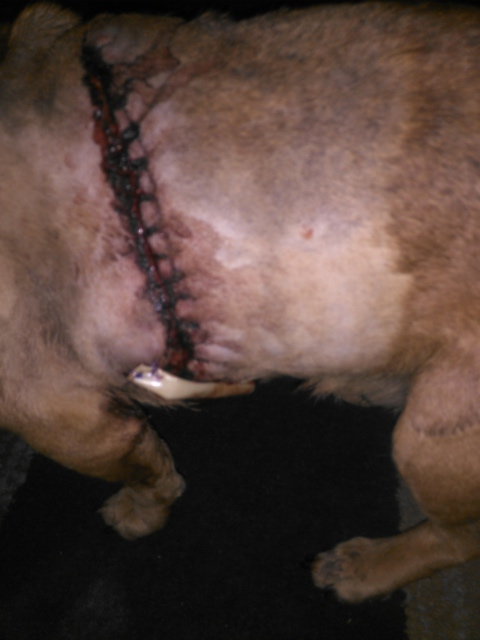 tumor on my dog
Question
stitched up second tim tumor
My d
tumor on my dog
Question
stitched up second tim tumor
My d
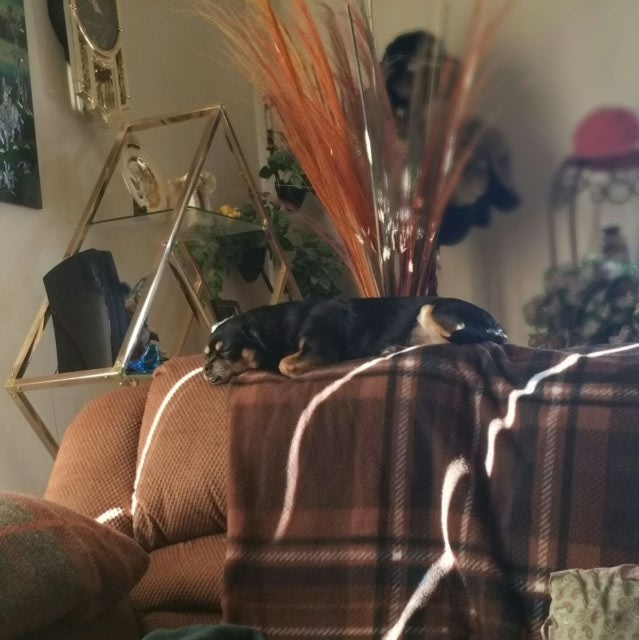 What breed is my dog?
Question
Sugar Sugar
I got my dog from an
What breed is my dog?
Question
Sugar Sugar
I got my dog from an
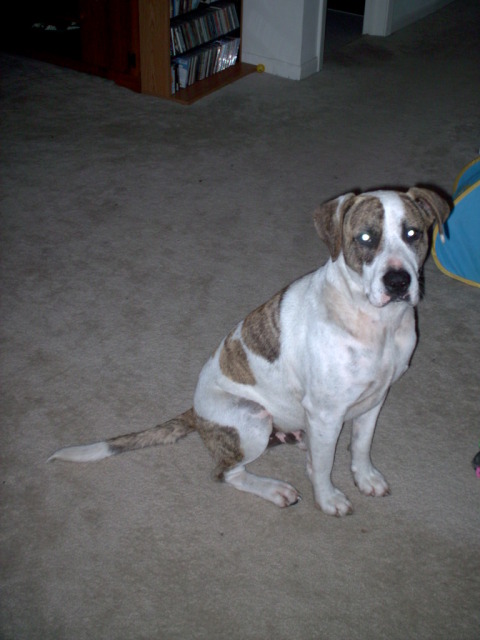 dog jumping fence
Question
dog
I have a 3 year old Staffordshire/Lab that
dog jumping fence
Question
dog
I have a 3 year old Staffordshire/Lab that
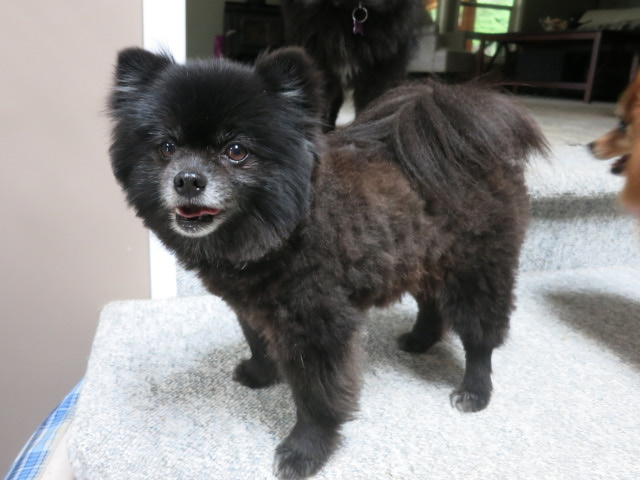 Will my Pomeranian loose his hair
Question
My Pomeranian`s hair c
I have a 5 year
Will my Pomeranian loose his hair
Question
My Pomeranian`s hair c
I have a 5 year
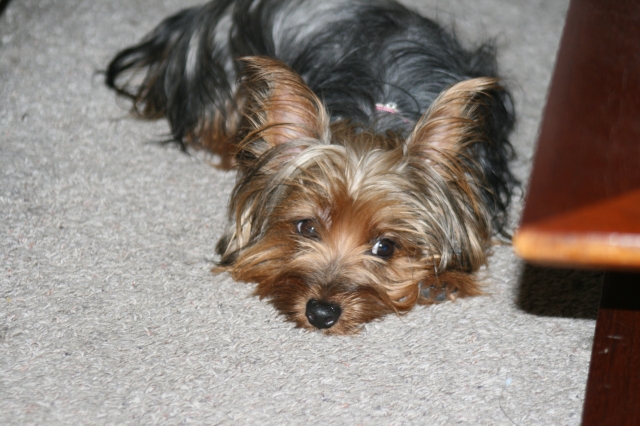 Agression towards kids
Question
Holly Daze
I have a 2.5yo Silky Terrier. She i
Agression towards kids
Question
Holly Daze
I have a 2.5yo Silky Terrier. She i